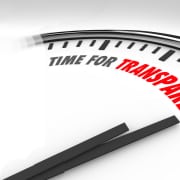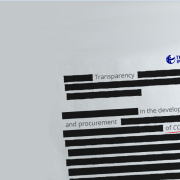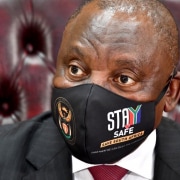|
Getting your Trinity Audio player ready...
|
The announcement that all Covid-19 tender contracts awarded under the state of disaster are now published and freely available is good news, but it must be followed by harsh punishment, including a new set of orange overalls, for those found guilty of corruption. The lists published by the Office of the Chief Procurement Officer include Covid-19 procurement information for goods and services from all provincial departments, national departments and more than 70 public entities.
Karam Singh, Corruption Watch’s head of legal and investigations, spoke to CapeTalk on 27 August about the development. “This is something we’ve been calling for since the beginning of the national state of disaster,” he said. “One of the big challenges we have around procurement, and one of the big corruption risks, is the lack of transparency in the system and the inability to effectively monitor what’s going on.”
In a letter to National Treasury dated 7 May, the organisation had expressed its concerns that the absence of transparency in the emergency procurement process made it impossible for third parties to monitor procurement, and undermined the constitutional requirement that procurement be done in accordance with a system which is transparent.
This inability to monitor effectively seemingly extended even to government, said Singh to CapeTalk. “Within government itself there wasn’t the capacity to do the type of monitoring and that relates to the lack of information and the lack of transparency. So once you‘ve got the publication of these lists, it makes that process much easier.”
Why officials didn’t anticipate this risk from inception, he added, baffles the mind.
Ramaphosa, meanwhile, waxed lyrical about the development.“This is a watershed moment that marks the start of a new era in transparency and accountability in the procurement of goods and services by public entities,” he told the National Assembly during a question and answer session on 27 August.
The move, said the Presidency in a statement, is in line with a directive issued by Ramaphosa on 5 August for departments to submit full disclosure on Covid-19 tenders to the ministerial team convened by Justice Minister Ronald Lamola.
But is it enough?
The public availability of tender information will indeed allow more organisations to monitor the emergency procurement process, but it’s what happens when irregularities are found that will make the difference. Law enforcement and investigations into Covid-19 corruption are not enough, said Singh. Even though the Special Investigating Unit (SIU) is currently investigating 658 companies, the South African public wants to see punitive measures imposed on those found guilty.
“I think that in terms of cancelling of contracts and in terms of the asset recovery process, we will see action in that area,” Singh said. “The bugbear is always prosecutions. We haven’t seen prosecutions going back 20 years for huge scandals across the public sector so to think that we’re now going to have a quick-fire set of prosecutions relating to Covid corruption is not a realistic expectation at this stage.”
Beyond the demonstration of political will, we also need to ask if our judicial system has the resources and the capacity to do these prosecutions, if the National Prosecuting Authority is adequately funded, and whether extra measures should be put in place.
“In 2010 we saw specialised courts set up to deal with offences in that period. Do we need a directive to courts to say that we’re going to prioritise corruption cases, or do we need dedicated courts to deal with corruption-related cases?” Singh said.
Prosecutions and convictions the ideal outcome
“By publishing these lists we have honoured our promise to the South African people. They enable proper scrutiny of the details of all companies who have received tenders for Covid-19 related services,” Ramaphosa told the National Assembly.
However, this is half of the battle. The other half depends on what happens to those found guilty of flouting the regulations.
South Africa needs to see commitment from government towards taking action that will match the strong rhetoric, Singh said.
Ramaphosa assured MPs that this would happen. “If the SIU finds evidence that a criminal offence has been committed, it is obliged to refer such evidence to the prosecuting authority. It is also empowered to institute civil proceedings for the recovery of any damages or losses incurred by the state.”
Government is determined to ensure that all criminal acts related to its response to the Covid-19 pandemic are uncovered and that those responsible are held to account, the president said.







